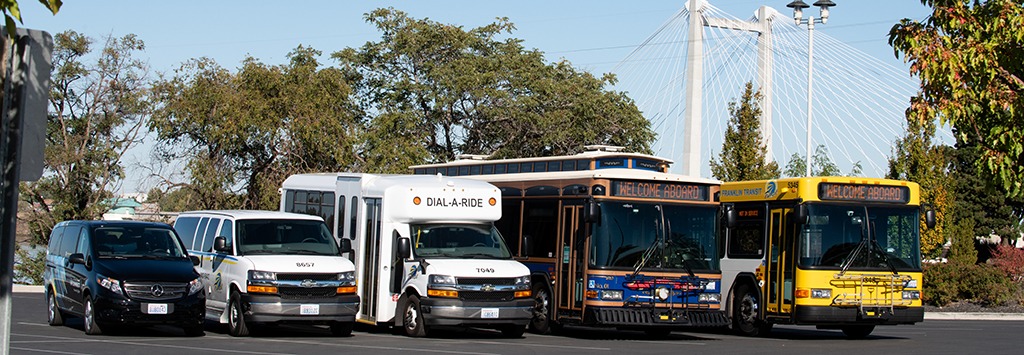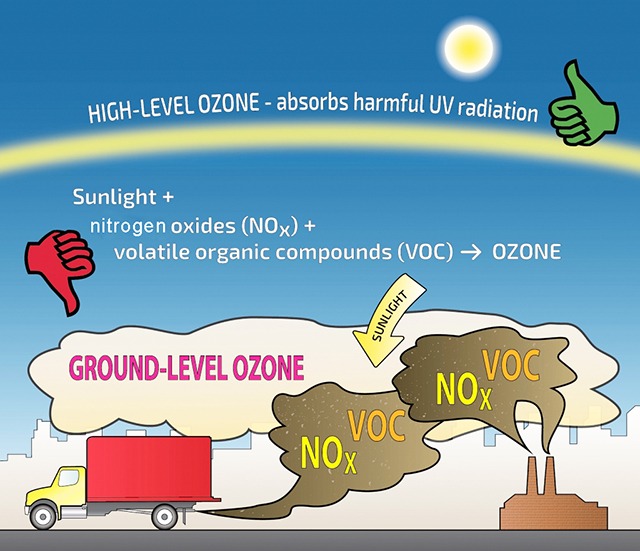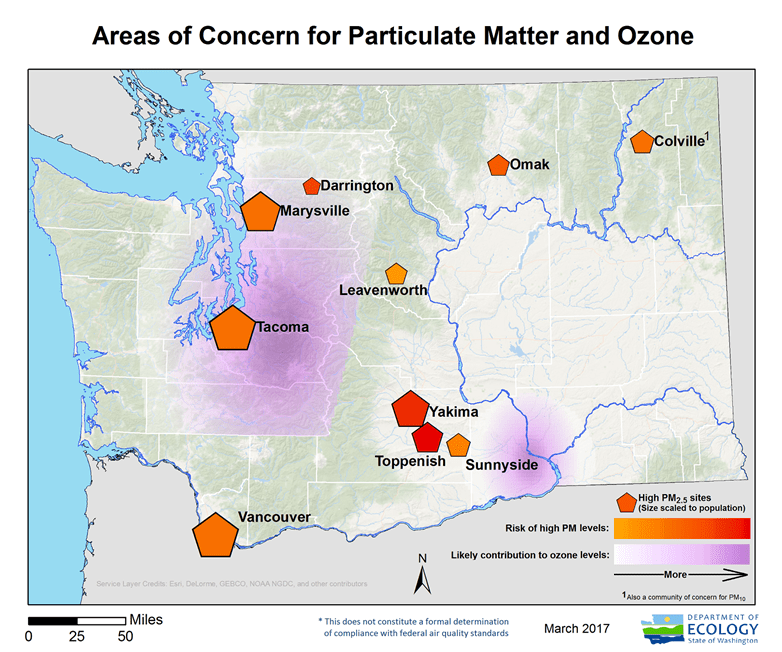
Tri-Cities A Hotpspot For Ozone Health Risk
Listen
(Runtime 2:03)
Read
The Tri-cities region is on notice by state and national environmental agencies over its ozone levels. The geography of the Columbia Basin traps damaging air pollution with hot summer temperatures. And that’s dangerous for resident’s health. The Tri-Cities has been identified as a “Hot Spot” for ozone pollution. The Washington State Department of Ecology is trying to mitigate the issue. Stephanie May is the department’s Communications Manager. She explains ozone is a pollution created by a chemical reaction from gasoline emissions.
 Courtesy WA State Dept. of Ecology
Courtesy WA State Dept. of Ecology
“Ozone can affect human health, it’s going to aggravate your respiratory system causing itchy eyes, coughs, maybe runny nose can really start to affect those with underlying health issues like asthma COPD things like that.” says May.
Ozone levels are rising with more cars on the road producing more pollution. The state’s ecology department is seeking solutions to the problem before the E-P-A evaluates the data it collects. The EPA looks at trends over 10 years. The state has teamed up with Ben Franklin Transit or BFT to encourage multi-modal transportation.
Stephanie May explains “We have a lot of power to help reduce the amounts of ozone pollution, because of that we worked with Ben Franklin transit to implement basically a commute trip reduction program was aimed at reducing the amount of single occupancy vehicles on roadways.”
The ozone level is not only a health concern. Matt Ragsdale with the BFT describes another challenge.

Courtesy WA state Dept. of Ecology.
“In the Tri Cities area, we have an ozone problem and we’ve been bordering on nonattainment with the EPA, which essentially means we’re almost at that threshold, where there will be some economic issues for us.”
Under the Clean Air Act, the EPA could issue a ruling of nonattainment. The consequences can include a rise in the permit costs for new factories or warehouses.
The BFT has received a grant to promote ride sharing, bus travel, van pooling, riding bikes, and encouraging companies to switch commuting times.
The EPA continues to monitor the air quality in the Tri-Cities and state and local organizations hope transportation solutions can improve the region’s ozone issue.















